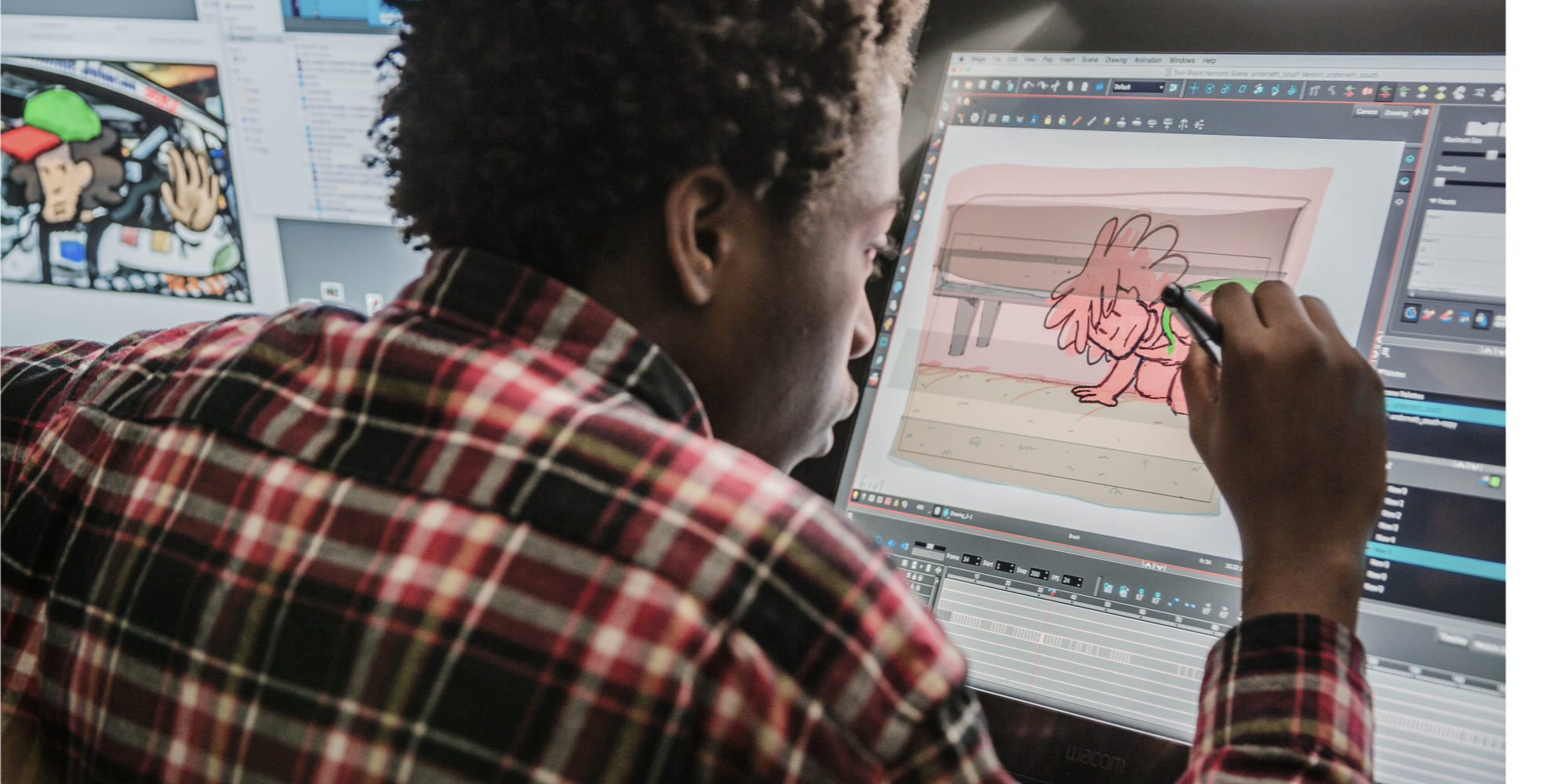| |
Dec 26, 2024
|
|
|
|
|
2023-2024 University Catalog
Animation, BFA
|
|

Chris McDonnell, Program Director
cmcdonnell@uarts.edu
215.717.6563
C O N T E N T S
Application
Learn more and apply to the Animation program.
Description
Animation is now, more than ever, ubiquitous in our daily lives. From the fantastic stories that entertain us at the movies, on television and mobile devices, to the interactivity of characters in games and new immersive media, to the motion graphics and visual effects of every video production, advertisement, and graphical user interface, an animator’s skills have been utilized to produce them. The Animation program prepares students to create innovative work in computer, traditional, stop-motion, and experimental animation. The basic principles of animation can be applied to all forms of image and object manipulation. The program grounds the graduates in a strong understanding of timing and motion, a thorough awareness of the wide variety of techniques available to current professional animators, and knowledge of the history and potential of the medium. Animation majors obtain a solid background in life drawing and traditional modes of animation, as well as 2D and 3D computer animation. Students design and complete 2 short films in their sophomore and junior years before their capstone senior thesis animated film, giving them 3 opportunities to go through the entire animation pipeline as they hone their storytelling skills.
Program Objectives
Students graduating with a Bachelor of Fine Arts in Animation will:
- Develop the ability to articulate and realize a strong personal artistic vision - combining informed meaningful content creation with unique visual approaches to produce engaging sound/image work.
- Master both traditional and digital animation skills and concepts; utilizing motion and time understanding with drawn, stop motion, and computer generated creative practices.
- Demonstrate critical and analytical thought couched within a historical context; and be able to communicate this using written, visual, oral, web or hybrid means.
- Learn to collaborate with artists, peers, and professionals; effectively managing time, planning, and work relationships.
Program Requirements (120 credits)
|
Major Requirements (63 credits)
- ANIM 401 Animation Thesis I 3 credits
- ANIM 402 Animation Thesis II 3 credits
- Select from: subject ANIM, Level 100 12 credits
- Select from: subject ANIM, Level 200 or 300 18 credits
- Select from: subject ANIM, Level, 200 6 credits Animation Sophomore Sequence
- Select from: subject ANIM, Level 300 9 credits Animation Junior Sequence
- Select from: subject ANIM, Level 400 3 credits Animation Senior Sequence
- Select from: subject DRAW, Level 100 3 credits
- Select from: subject IMAG, Level 100 3 credits
- Select from: subject WFTV, Level 100 3 credits
Discipline History (9 credits)
Critical Studies (30 credits)
Writing (6-12 credits)
Students are placed into one of the following writing sequences after the completion of a writing placement exam. Students who do not complete the exam may be placed based on standardized tests scores (if available) or high school GPA.
CRIT Choice (9 credits)
- Select 3 courses from subject CRIT
Critical Studies Electives (12-15 credits)
Students who complete the increased support or ESL writing sequence complete 9-12 credits of CS electives; all other students complete 15 credits.
- Though not representative of all options, students can select from the following subjects:
- AHST (Art History), HIST (History)
- AMSL (American Sign Language), FRCH (French), LITT (Literature)
- PHIL (Philosophy), RELI (Religion)
- SCIE (Science)
- ANTH (Anthropology), PSYC (Psychology), SOCI (Sociology)
- : Critical Studies Elective.
General Electives (18 credits)
- Complete 18 credits. This requirement is satisfied by any undergraduate course that isn’t required by the program.
|
|
|